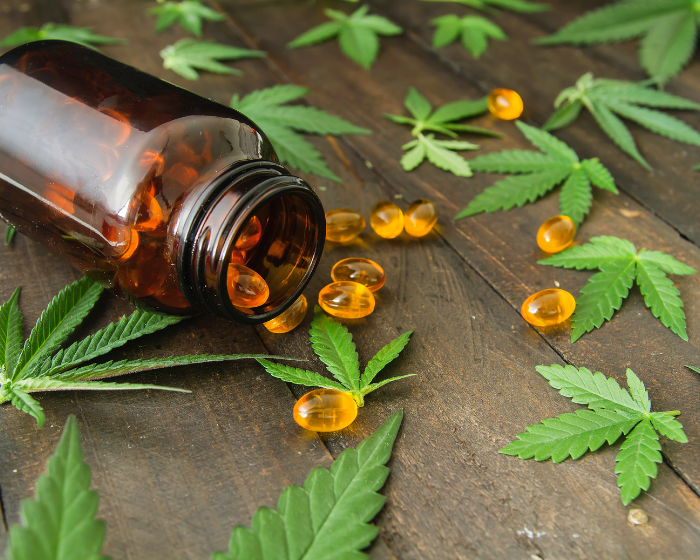In response to recent statements by the regulatory agency concerning the safety of CBD, many hemp organizations are challenging the scientific basis for much of the FDA's conclusions.

Since the passage of the 2018 Farm Bill, which legalized hemp cultivation and the manufacture of hemp-derived products, concerns over the safety and efficacy of these offerings have increased sharply, especially for one of the most successful and lucrative product offerings - CBD or Cannabidiol.
CBD is the second most prevalent ingredient in the cannabis sativa plant, with delta-9 THC (the most well-known psychoactive part) as the primary active component. The cannabis sativa plant is comprised of cannabis or marijuana and hemp. The 2018 Farm Bill set a clear definition for both portions. According to the statute, hemp is any part of the plant containing less than 0.3% delta-9 THC. Those parts containing more than that threshold amount are classified as cannabis.
CBD is extracted from hemp but can also be made in a laboratory. The medicinal benefits of using CBD have been primarily anecdotal and unverified for years because hemp was a Schedule 1 controlled substance until the Farm Bill's passage, which prohibited researchers from studying the effects of prolonged use.
However, since hemp's change in legal status, more concrete and valid studies have provided evidence of CBD's health and wellness benefits. For example, there is strong scientific confirmation of its effectiveness in treating specific devastating childhood epilepsy syndromes, such as Dravet syndrome and Lennox-Gastaut syndrome (LGS), which do not respond well to antiseizure medications. Additionally, animal tests and self-reporting or research on human subjects strongly suggest that CBD may help with anxiety, insomnia, chronic pain, and addiction.
As a result of these findings and an aggressive marketing strategy on the part of CBD manufacturers and retailers, the market for the hemp-based variant has exploded in the past five years, with global revenue surpassing $15 billion in 2022. However, the industry has recently come under attack over some of the variant's potential detrimental health effects.
Likewise, the exact best way to regulate CBD and other hemp-derived products has also been a point of contention, with the FDA relinquishing its authority to establish guidelines to Congress in a letter this past January. In that letter, the agency said there needed to be more information about the safety of CBD products to properly regulate them as foods or supplements under the FDA's current structure.
For its part, the agency began researching the effects of CBD on consumers in 2019 by conducting some internal toxicology studies while reviewing the existing research and monitoring "adverse event" reports by consumers.
That due diligence generated significant alarm internally regarding the potential safety of CBD, especially concerning its potential harm to the liver and male reproductive system, adverse interactions with certain medications, and effects on vulnerable population groups and pregnant women.
However, as first reported by HempToday, the hemp industry is beginning to push back on the findings reported by the FDA. In a letter sent to Senate and House committees this week, the U.S. Hemp Roundtable (USHR) soundly criticized the agency for drawing conclusions that exaggerate the potential dangers of CBD based on outdated research.
According to the USHR, the studies in question focus mainly on highly concentrated pharmaceutical-grade CBD formulations and completely ignore more recent research since 2020 that demonstrates the safety of lower-dose over-the-counter extracts. The group goes on to say that consumers would never be exposed to the CBD concentration levels detailed in the studies referenced by the FDA, noting, "Even essential nutrients like Vitamin D can be both beneficial and toxic depending on the dose."
Further emphasizing the organization's position on the FDA's questionable research findings, USHR General Counsel Jonathan Miller wrote in the letter, "As Congress develops plans to ensure the regulation of hemp extracts such as CBD, it should focus its attention on how these products are typically used, and not be distracted by studies that imagine their gross over-consumption which is not a realistic concern. Combined with the low number of adverse events associated with CBD products and real-world, observational data that also points to the safety of CBD, the totality of the evidence paints a much different picture than what is presented by the FDA."
"As Congress develops plans to ensure the regulation of hemp extracts such as CBD, it should focus its attention on how these products are typically used, and not be distracted by studies that imagine their gross over-consumption which is not a realistic concern. Combined with the low number of adverse events associated with CBD products and real-world, observational data that also points to the safety of CBD, the totality of the evidence paints a much different picture than what is presented by the FDA."
- USHR General Counsel Jonathan Miller
The letter was sent to the Senate Committee on Health, Education, Labor, and Pensions and the House Committee on Energy and Commerce and came on the heels of a recent webinar conducted by senior FDA officials concerning the best pathway forward in creating a separate category for CBD and other hemp-based cannabinoids. This grouping would exist outside the current ones of drugs, food, and food supplements for which the FDA sets rules.
Furthermore, under this cannabinoid-specific regime, the agency could set guidelines for content limits, truth in labeling, full disclosure of ingredients in product offerings, assurances of zero contaminants, and measures to keep children from accidentally ingesting items.
For the USHR and other hemp stakeholder groups, this new category for CBD and hemp products is wholly unnecessary and would only add delays and further economic hardships to an industry already reeling from a post-COVID market downturn.
In response to the FDA's suggestion of a new category, the USHR reiterated in the letter its long-held view that the FDA's current regulatory infrastructure for foods and supplements, including mandatory good manufacturing practices, dietary ingredient notification requirements, and obligatory serious adverse event reporting is more than sufficient to ensure the safety of over-the-counter CBD and other hemp-based products.
The more ominous and potentially catastrophic option could be one in which the FDA goes in an entirely different direction and designates CBD as a prescription-only drug. This outcome would not be a necessarily surprising choice according to close sector observers.
With the vast array of low-quality and predominantly unregulated products propped up by bogus health claims currently glutting the market, the agency may view the potential health risks as a reasonable justification for walling off CBD under the protection of a prescription-based protocol.
With the FDA already approving one medical-grade CBD product, Epidiolex, and insisting that long-term research (two years or more) on over-the-counter CBD offerings is still needed to ensure their safety, a short pathway to FDA approval seems dubious for a majority of manufacturers and retailers in desperate need of that "FDA Approved" stamp for their products.
For now, the ball is squarely in Congress' court. Consequently, many advocates and stakeholders are eyeing the Farm Bill renewal debate later this year as the final battleground for the ultimate fate of CBD and the hemp industry.






































